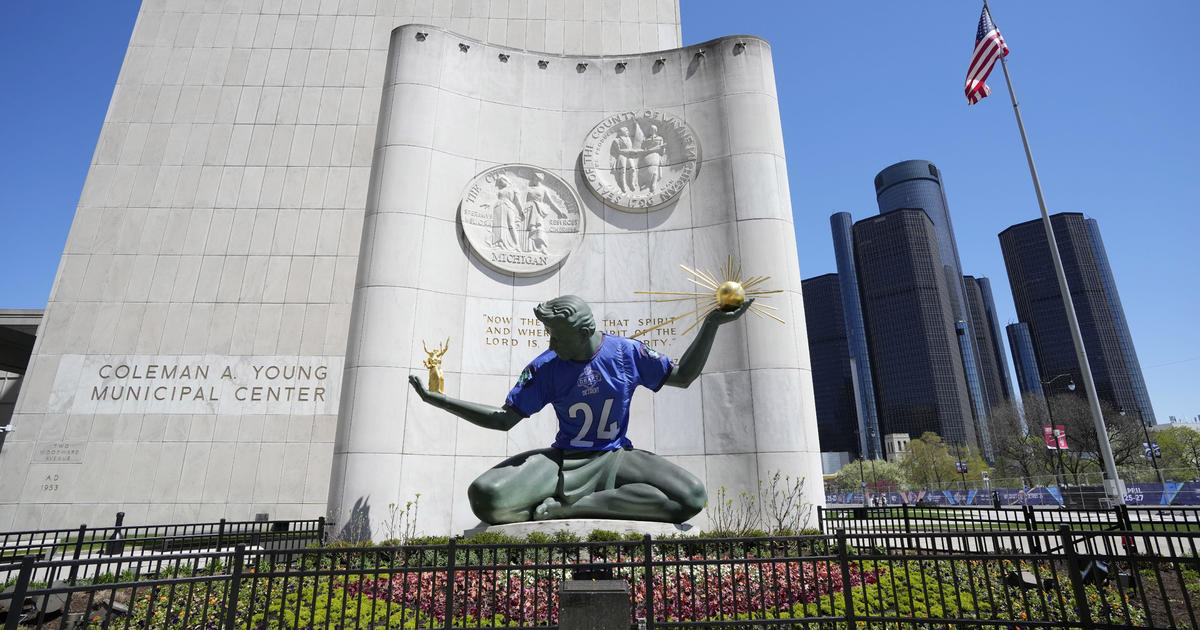Mich. Road Funding Talks Still At Standstill
By David Eggert, Associated Press
LANSING (AP) - High-level talks over fixing Michigan's deteriorating roads are at a standstill in the Capitol, with Republican and Democratic leaders still unable to agree much on how to even start.
Feeling burned by passage of a right-to-work law five months ago, Democrats won't consider tax or fee increases without public assurances that GOP Gov. Rick Snyder will veto other legislation seen as damaging to their cause. Specifically, they want a repeal of a law guaranteeing better wages on government construction projects taken off the table, along with a potential bill dividing the state's electoral votes proportionally.
Majority Republicans counter that Democrats must move beyond making demands and put forth their own road-funding proposals.
Neither side appears to be budging.
Asked Thursday if any progress has been made, Snyder said "it's going slower than what I'd like" given a goal to finalize the next state budget within a month.
"People are still in talks and discussions. This is a very difficult topic," he said, pointing out that Michigan's gasoline tax was last raised in 1997.
Senate Minority Leader Gretchen Whiter, an East Lansing Democrat, said legislative leaders and Snyder haven't all met together since a heated meeting 2 { weeks ago.
"If we're going to sit down and hammer out a grand bargain for infrastructure and other issues facing our state, trust has got to be established again or earned," she said.
If Snyder publicly commits to keeping the prevailing wage law intact or not ending the state's winner-take-all system in presidential elections, she said, it would help. Taking both off the table "would be ideal," Whitmer said.
Frustrated Republicans say the negotiating tactic is unhelpful.
"They're saying, `We want everything we want and then we'll give you no assurance that we'll help you with solving the road problems,"' said House Speaker Jase Bolger. "We're saying, `Please, give us a list of what you want but participate in providing the solution at the same time.' ... We've continued to reach our hand out and that hand has not been returned."
The Marshall Republican said he understands the bills to repeal prevailing union-scale wages for government construction projects may have to be dropped in any road-funding deal, "but we can't get to that point if we don't know what they're willing to participate in."
Democrats counter that plans being floated by the GOP have minimal support from rank-and-file Republicans, so why should they get onboard.
The most-straightforward proposal - Snyder's call to raise the gasoline tax and vehicle registration fees - wasn't embraced when he made it part of his proposed budget in early February.
The main alternative still appears to be converting motor fuel taxation from a fixed per-gallon tax to one based on price and eliminating the sales tax on fuel, which could be pitched to drivers as not raising their price at the pump and making sure all fuel taxes go to road upkeep. To offset a drop in funding for schools and local governments, legislators would ask voters to raise the sales tax on all other purchases from 6 percent to 7 percent.
The problem is two-thirds votes in the House and Senate are needed to put a sales tax hike on the statewide ballot, one reason Democratic support is seen as crucial. Snyder's plan would need regular majority votes.
Senate Majority Leader Randy Richardville, a Monroe Republican, said the prevailing wage legislation won't go anywhere "unless I were to die." The governor has said he's not interested in the bills, either, but has stopped short of publicly promising a veto.
To Democrats, Snyder's reticence is similar to his signing the right-to-work law after saying for at least two years that it wasn't on his agenda. The law prohibits requiring workers to pay union dues or fees as a condition of employment.
"Everything he says sounds like quote-unquote `not on my agenda,' which means I'll do it later," Whitmer said.
One positive sign was House Republicans recently agreeing to drop threats to punish public universities, K-12 schools and local governments that signed lengthy new labor contracts delaying the effect of right to work. The GOP calls it a show of good faith; Democrats say the funding penalties never should have been pursued and things are only "back to neutral" after December's contentious lame-duck session.
Republicans, in turn, blame unions for putting right to work on Snyder's radar by pushing a failed ballot measure that would have locked collective bargaining rights into the state constitution and prevented right to work in Michigan.
"I don't see any inconsistency and I certainly don't see any reason for a lack of trust," Bolger said. "The governor's got a very reasonable stance when he says we can talk about taking prevailing wage off the table, but he's not going to do so until or unless we know what the solution is and until or unless we know if they're going to support the solution."
© Copyright 2013 The Associated Press. All Rights Reserved. This material may not be published, broadcast, rewritten or redistributed.



